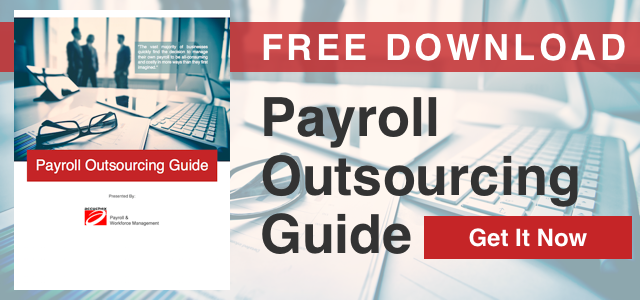 The California Sick Leave law (AB 1522), officially known as the Healthy Workplace Healthy Family Act of 2014, was enacted last year.
The California Sick Leave law (AB 1522), officially known as the Healthy Workplace Healthy Family Act of 2014, was enacted last year.
On January 1st of this year, the qualifying periods that determine which employees are eligible for paid sick leave and the employee notice required by Labor Code 2810.5 became effective. The law states that actual entitlement will begin on July 1, 2015 which is only 10 days away.
How the California Sick Leave Law Will Impact You
Beginning on July 1, 2015, California employers will need to provide paid sick leave to most of their full-time, part-time, temporary and even on-call employees.The stipulations and nuances of the law are challenging at best, and can be confusing and difficult, as well.
According to an article from the California Employment Law website, here is a possible scenario for employers:
"So, imagine this. Employee is due in at 9 am. Employee wakes up to a suddenly sick child at 7:15 am (not foreseeable). The employer’s policy requires a 2-hour minimum call out for a missed shift. However, the employee misses that window and calls at 8 am (or maybe even at 9 am when expected at work). The employee has not found a replacement to cover the shift. Now what? Can the employee be disciplined for failing to use the employer’s call out procedure? For not finding a replacement? Unfortunately, the answer is very likely – no. The employer is stuck with an absent employee, no one to cover, and no one to hold accountable."
As with many other California labor laws, the paid sick leave law has significant impact and a number of requirements for employers.
Six Tips For California Employers
Here are six points to keep in mind when revising your previous sick pay policies and practices:
1. Determine eligibility for paid sick leave
An employee qualifies for paid sick leave by working for an employer on or after January 1, 2015, for at least 30 days within a year in California and by satisfying a 90 day employment period, which works like a probationary period, before an employee can actually take any sick leave.
Temporary employees of a staffing agency are covered by the new law. Therefore, whoever is the employer or joint employer is required to provide paid sick leave to qualifying employees.
2. Know how qualifying employees accrue and take paid sick leave
Starting July 1, 2015, employees will earn at least one hour of paid leave for every 30 hours worked. That works out to a little more than eight days a year for someone who works full time. But employers can limit the amount of paid sick leave you can take in one year to 24 hours, or three days.
Because paid sick leave accrues beginning on July 1, 2015 or the first day of employment if hired after July 1, 2015, the 12 month period will vary by hire date for those employees hired after July 1, 2015. Therefore, the measurement will mostly be tracked by the employee’s anniversary date.
3. Ensure that your policies can provide more paid sick leave but not less
The new law establishes a minimum requirement, but an employer can provide sick leave through their own plan or establish different plans for different categories of workers. However, each plan must satisfy the accrual, carryover, and use requirements of the law or put the full amount of leave into the employee's leave bank at the beginning of each year in accordance with the PTO policy.
If an employer provides a policy which exceeds the minimum requirements, including providing a specific cap, the policy must be clear as to the additional terms that apply to their employees.
4. Know what purposes an employee can take paid sick leave
An employee can take paid leave for themselves or a family member for preventive care or care of an existing health condition or for specified purposes if they are a victim of domestic violence, sexual assault or stalking. Family members include the employee’s parent, child, spouse, registered domestic partner, grandparent, grandchild, and sibling.
Preventive care would include annual physicals or flu shots. For partial days, you can require the employee to take at least two hours of leave, but otherwise the determination of how much time is needed is left to the employee.
5. Set up payment and tracking procedures for earned and taken leave
The new law requires that an employer provide payment for sick leave taken by an employee no later than the payday for the next regular payroll period after the sick leave was taken. This does not prevent an employer from making the adjustment in the pay for the same payroll period in which the leave was taken, but it permits an employer to delay the adjustment until the next payroll.
Employees must be paid at their regular hourly rate. If their pay fluctuates because they receive a commission or piece rate, the employer will divide the total compensation for the previous 90 days by the number of hours worked and pay that rate.
6. Provide the required information to employees
Beginning January 1, 2015, employers were required to post in a conspicuous place at the workplace, a poster containing the following information:
- That an employee is entitled to accrue, request, and use paid sick days
- The amount of sick days provided for and the terms of use of paid sick days
- That retaliation or discrimination against an employee who requests paid sick days or uses paid sick days or both is prohibited
- That an employee has the right under this law to file a complaint with the Labor Commissioner against an employer who retaliates or discriminates against an employee.
The Challenges of the California Sick Leave Law for Employers
In addition, employers are required to provide most employees with an individualized Notice to Employee that includes paid sick leave information.
And what if an employer fails to be in full compliance?
If the Labor Commissioner finds an employer in violation of AB 1522 requirements any of the following actions could be required: reinstatement, back pay, payment of sick days unlawfully withheld, plus payment of an administrative penalty. According to the law, the administrative penalty may be the greater of three times the dollar value of the paid sick days withheld, or $250, to a maximum of $4,000.
In addition, if an employer fails to promptly comply with the required penalty, the Labor Commissioner may take enforcement action, which could result in a penalty of up to $50 per day per employee whose rights are violated.
AB 1522 does include some language that protects employers. For example, an employer cannot be assessed any penalty or liquidated damages “due to an isolated and unintentional payroll error or written notice error that is clerical or an inadvertent mistake regarding the accrual or available use of paid sick leave.”
While employees may not file lawsuits against employers for allegedly violating the new paid sick leave provisions, the Labor Commissioner or the Attorney General can and may file a civil action in court against the employer. If they win the suit, they are then entitled –“on behalf of the aggrieved” employee, to all the remedies mentioned above plus reasonable attorneys’ fees and costs.
You can find more information on the FAQ page of the State of California's Department of Industrial Relations website.
Stay Informed, Stay Compliant
An updated and streamlined sick leave strategy will help your organization meet its obligations, while providing accuracy and timeliness. So take time to understand the law, automate sick leave tracking and calculations, and prioritize accurate record keeping. In this way, you will make compliance a sure thing.
Another key step in maintaining HR compliance and increasing your company's cost-effectiveness is to consider outsourcing. A professional agency such a Accuchex can provide much-needed help with Human Resources needs and questions. Accuchex is a full spectrum Payroll Management Services provider offering expertise in Time Management, Insurance and Retirement issues, as well.
If you are looking for reliable resource for your HR issues, we can help. And you can get your Free Download: Payroll Outsourcing Guide to help you make an informed decision, or call Accuchex Payroll Management Services at 877-422-2824.


